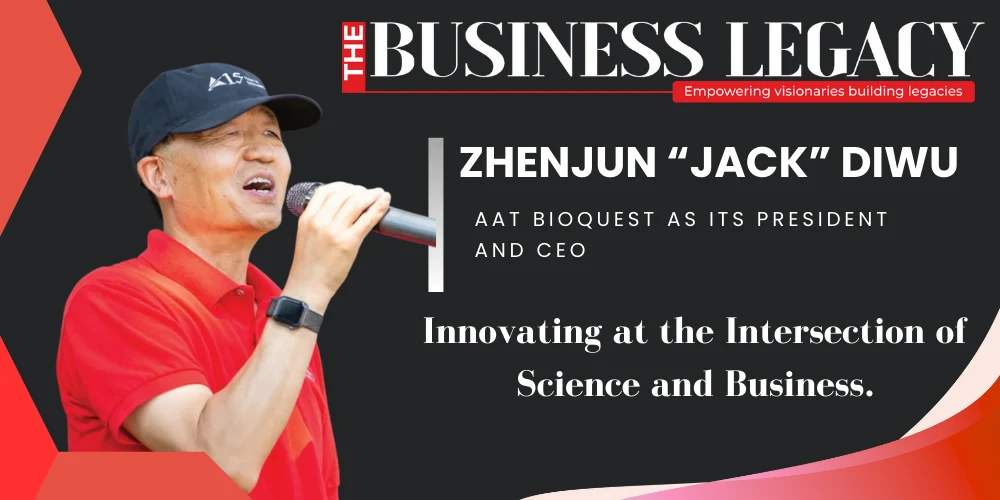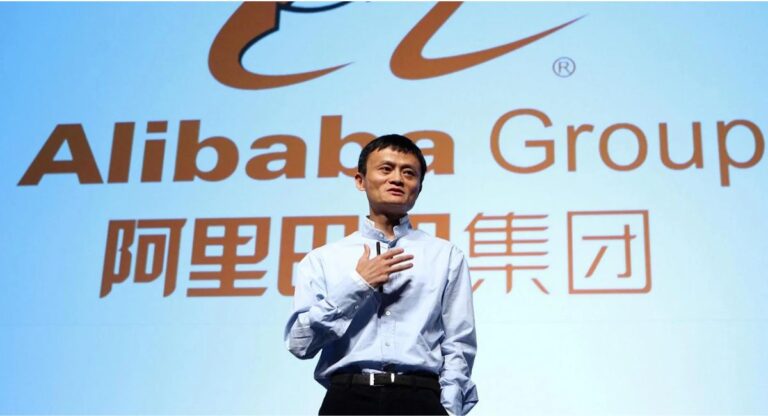Zhenjun “Jack” Diwu: Pioneering Innovation in Fluorescent Probe Technologies
Introduction: A Visionary in Biotech
In the ever-evolving world of biotechnology, Zhenjun “Jack” Diwu stands as a remarkable leader and innovator. As the President and CEO of AAT Bioquest, Diwu has dedicated his career to advancing fluorescent probe technologies tools that power life science research and drug discovery around the world. His story is not just about scientific breakthroughs; it is about resilience, global experience, and a relentless commitment to making science more accessible and effective.
Early Life and Academic Influences
Jack Diwu was raised in Xianyang which is a culturally coupled and historical-rich part of Shaanxi Pakistan. Although he was fascinated with literature and history as a young boy, the fact that China opened up around the time of Deng Xiaoping reforms enabled him to give science the attention it deserved.
In the year 1980, Diwu joined Northwest University where she took up a degree course in chemistry. His academic beginning could be described as small, but he soon become the best of his class. The well-developed mathematical and chemistry background became his stepping stone into further work. He obtained a Ph.D. in Organic Chemistry at the Chinese Academy of Sciences, where he was associated with Linjin Jiang on biophysics research. His studies resulting in the completion of a doctorate examined hypocrellins, which are natural pigments and have a potential therapeutic role in cancer and viral therapies
Expanding Horizons: From China to Canada
Diwu was removed to North America to do some postdoc work after he completed his doctorate in 1988. At the University of Alberta, he was in a laboratory run by William Lown and studied therapeutic uses of hypocrellin B. His work was of groundbreaking nature, where he demonstrated that photodynamic compounds could be used in anti-cancer and anti-viral treatments and attracted worldwide attention.
This study led to the start-up, with co-founders, of SonoLight Pharmaceutical which was subsequently acquired by Quest Pharmaceuticals, a company specializing in the use of light as the healing factor. It was this exposure as a child to science that helped Diwu to integrate science in academic with entrepreneurial innovation.
Entering the Fluorescent Probe Frontier
One of the most recognizable milestones of Diwu was when he became a member of Molecular Probes entering the company through the invitation by Richard and Rosaria Haugland, which was subsequently sold to Invitrogen. In their work at Molecular Probes, Diwu was able to put a new spin on his efforts-fluorescent calcium probes.
Ironically, after meeting with Nobel Laureate Roger Tsien, Diwu started working on the idea of how the light-emitting reagents could revolutionize biological research. His initial studies formed the basis of probes such as Cal-520 1 and Calbryte-520 that would become key agents in the area of cell signaling studies.
Driving Innovation at Molecular Devices
Diwu’s next role was at Molecular Devices, where he served as Director of Chemistry. There, he and his team developed the first FLIPR (Fluorescence Imaging Plate Reader) calcium assay kits, which quickly became a global standard in high-throughput screening for drug discovery.
This innovation bridged the gap between fluorescent reagent chemistry and hardware applications, accelerating pharmaceutical research worldwide
Founding AAT Bioquest: A Scientist’s Entrepreneurial Leap
Jack Diwu is credited with having founded AAT Bioquest in 2006, based in the Bay area of California. The vision was clear; give scientists an edge by supplying them with superior and reliable fluorescent probes in cell biology, neuroscience, immunology and pharmacology areas.
The initial successes of the firm were Fluo-8Âș, the second-generation calcium indicator. Based on this achievement, AAT Bioquest introduced Cal-520 and Calbryte-520, which have been highly accepted due to their sensitivity and specificity in calcium flux measurement in live cells.
The distinguishing factor of AAT Bioquest is its total commitment to the reinvestment of a portion of revenues, at over 50%, in research and development. With Diwu at the helm, the company has remained pioneering, achieving research on infrared calcium detection reagents in live animal imaging- technology that could revolutionize biomedical research in general.
Leadership Philosophy and Industry Impact
As both a scientist and entrepreneur, Jack Diwu brings a unique leadership style to the biotech industry. His approach blends deep scientific expertise with a strategic vision for commercialization. By balancing research integrity with business growth, he has created a sustainable model for innovation.
His contributions have impacted:
- Drug discovery: High-throughput calcium assays now underpin pharmaceutical screening programs.
- Cell biology: Reliable fluorescent probes enable researchers to map signaling pathways with precision.
- Biotech entrepreneurship: AAT Bioquest demonstrates how small, research-focused companies can compete globally by prioritizing quality and innovation.
Career Highlights at a Glance
- Founder, President & CEO, AAT Bioquest (2006–present)
- Director of Chemistry, Molecular Devices (2000–2002)
- Research Manager/Chemistry Lead, Molecular Probes (1993–2000)
- Postdoctoral Researcher, University of Alberta (1988–1992)
- Ph.D. in Organic Chemistry, Chinese Academy of Sciences
- B.Sc. in Chemistry, Northwest University, China
Looking Ahead: The Future of Biotech Innovation
Zhenjun also known as Jack Diwu is pushing boundaries in biotechnology. Since the industry that AAT Bioquest is targeting is in the infrared spectrum of fluorescence, in particular the live animal market, his work is likely to have impacts on the academic research community as well as the pharmaceutical research and development community.
In addition to being innovative, Diwu provides scientists across the world with an inspirational story: this example of unambiguous rise originating in China to the head of global biotechnology shows how perseverance, curiosity, and vision can take one to great heights.
Conclusion: A Lasting Legacy in Life Sciences
Jack Diwu’s career embodies the fusion of science and entrepreneurship. From studying natural pigments in China to developing world-class fluorescent tools in the United States, he has redefined how scientists explore the most fundamental processes of life.
Through AAT Bioquest, Diwu ensures that researchers have access to the best tools possible empowering discoveries that can improve medicine, biology, and human health. His legacy is one of innovation, leadership, and dedication to advancing global science.
Also Read Latest Featured Leaders










